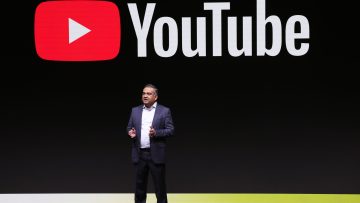In case you haven’t been keeping up with the Apple rumor mill this week, word on the street suggests that Apple is planning a standalone speaker with Siri built in. It’s being touted as a competitor to Amazon Echo and Google home, and will reportedly “carry a premium price,” and be packed with powerful speakers to give it an edge over its already established rivals. The possibility of a new Apple product category is always exciting, and if Apple positions the new device as a true piece of audiophile-friendly home sound equipment, it would be deal for a number of reasons. But if there’s one thing that’s going to hold the still-mythical Apple Alexa-alike back it’s the fact that Siri, well, still kinda sucks.
Let’s not beat around the bush here: Siri had a three-year head start before Amazon Alexa even launched. That was three years where Apple could have positioned Siri as the end-all, be-all of virtual assistants. Instead, Siri fell well short of its promise, and while it the lovable digital gal has indeed gotten better in the years since it originally launched, Alexa’s almost immediate runaway success is all the proof you need that Apple’s AI simply didn’t deliver.
Today, Amazon is scoring partnerships with GE, Ford, and other huge companies that want to integrate Alexa into their own products, gradually pushing the popular AI out of the living room and into almost every aspect of customers’ lives. Alexa gets new “skills” on a regular basis, and is constantly learning. By contrast, Apple put Siri on a device that is always by your side, but by coming up short with Siri’s functionality (especially early on) it opened the door for the competition to beat them at their own game.
To be clear, Alexa and Siri are, at this point, essentially neck and neck in terms of much of their functionality. Things like scheduling reminders, searching for random bits of info, grabbing weather forecasts, and other common tasks can be done by either AI. Siri excels at smartphone-specific duties, like texting via voice and integration with Apple’s own apps. However, Apple’s intentionally walled approach to software has kept Siri from excelling in a few areas where it desperately needs to.
The most clear example of this Apple-first mindset is in Siri’s lack of support for Spotify. Spotify is the king of streaming music today, and I can ask Alexa to start a specific Spotify playlist, play a specific song, shuffle, repeat, and do essentially anything with the Spotify app that I’d be able to do by tapping my fingers on a touchscreen. With Siri, I can launch the Spotify app on my phone and, well, that’s pretty much it. If I summon Siri while something is already playing I can ask for the next track or pause the music, but I can’t ask for anything even remotely specific or Apple tries to push Apple Music on me instead.
It’s classic Apple logic. If you want an Apple product to do something with an app, it better also be an Apple app or have no comparable Apple counterpart or you’re out of luck. That approach has produced mixed results for the company over the years. Many of Apple’s default apps are best-in-class on Mac and iOS, but as we all remember, deciding to snub Google Maps in favor of Apple Maps was an absolute nightmare, and even prompted an apology from the company along with a recommendation to just use Google’s product instead.
With Alexa, Amazon has shown itself to be much more self-aware, knowing where its products stand. Amazon is no stranger to pushing the competition out by force — and you still can’t buy a Google Chromecast on Amazon because Amazon wants you to buy a Fire TV Stick instead — but they’ve okay’d Spotify’s Alexa skills even though it’s a direct competitor to its own Music Unlimited subscription service. Siri only officially supports Apple Music, and hasn’t allowed any other music service to tinker with the assistant’s brain.
Almost every head-to-head competition between Siri and Alexa ends with Siri showing impressive power with niche applications and tasks, and Alexa winning in terms of overall functionality with a good mix of shopping, music, and overall smarts mixed in. When Google is included in the mix, it typically crushes both of the others because, well, Google knows more about us than either of the other companies can even begin to grasp.
Alexa (and Google Home) aren’t seen as being better than Siri because they’re in a standalone speaker. They’re seen as better than Siri because they’re better than Siri, or at the very least, they do things that Apple hasn’t even allowed Siri to do. Unless this new, rumored Siri speaker launches alongside a massive software update that expands its abilities with new APIs, and allows all developers to truly build themselves into the Apple assistant’s brain, they might as well not even bother.







